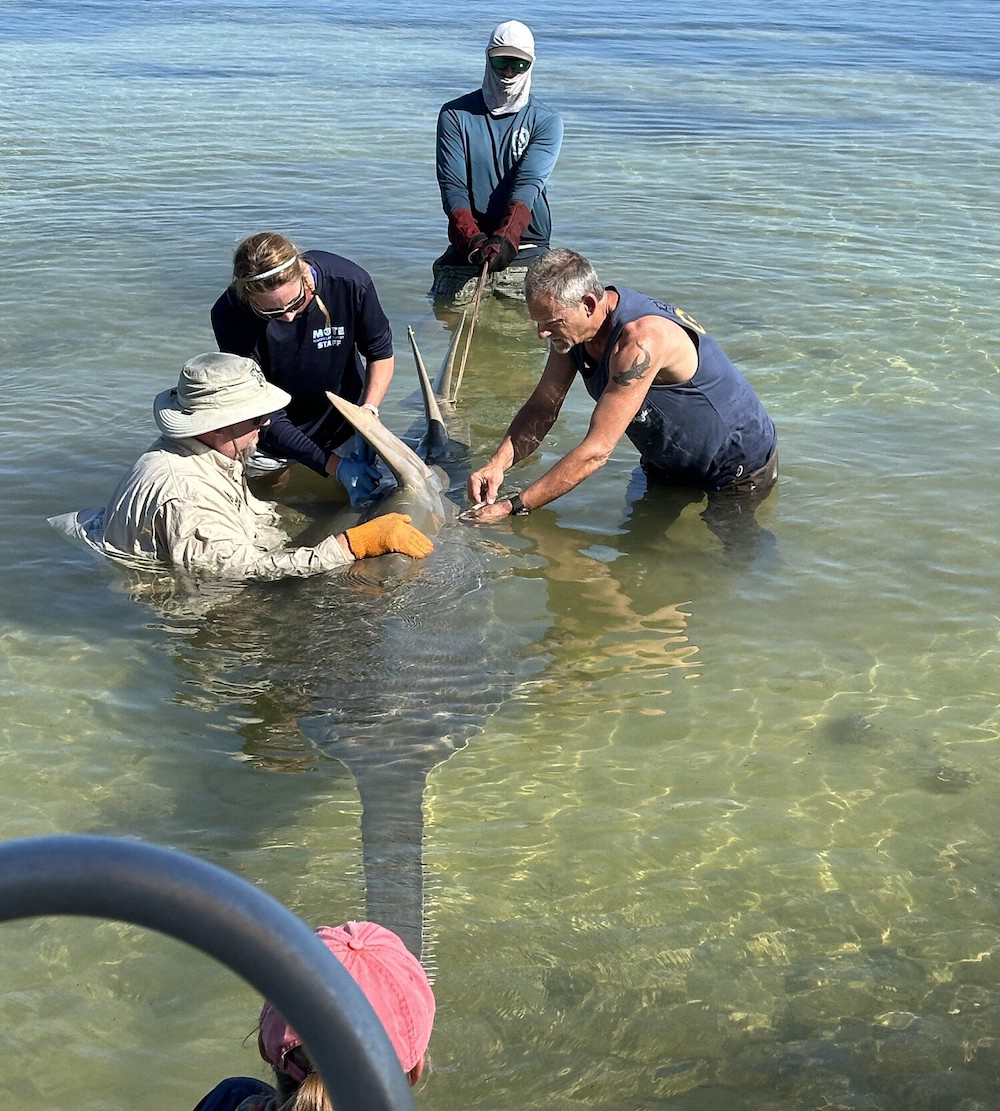Biologists Rescue Sawfish in the Florida Keys

An endangered smalltooth sawfish is recovering after being rescued from Cudjoe Key and transported to Mote Marine Laboratory’s facility. A member of the public reported the animal swimming in circles in Cudjoe Bay. Biologists with the Florida Fish and Wildlife Conservation Commission and Mote Marine Laboratory responded to the distressed sawfish. They completed a quick field assessment that included taking samples, measurements, and tagging, before making the rescue decision. The sawfish was loaded onto a vessel and provided respiratory assistance during the short boat ride to a temporary holding tank.
“Led by NOAA, our biologists and partners have taken an unprecedented step to rescue an adult smalltooth sawfish in the Keys. This has not been attempted before, but this unusual mortality event made this necessary,” said Gil McRae, Director of FWC’s Fish and Wildlife Research Institute. “We are hopeful this rescue and rehabilitation of an adult smalltooth sawfish will bring us one step closer to understanding the cause of this event.”
The sawfish is a 11-foot male. It has been treated and observed around the clock since its rescue on April 5. Veterinarians have provided care and treatment, which will continue for rehabilitation. Once the animal appeared capable of withstanding the nearly 7-hour drive to Mote Marine Lab’s facility, biologists carefully loaded it into a transport trailer operated by Ripley’s Aquariums. Ripley’s Aquariums conservation team monitored the sawfish and water quality conditions throughout the trip to the facility.
Now at Mote, scientists will continue to monitor and treat the sawfish. We hope it will be fully rehabilitated and returned to the wild. We are excited about the successful steps to date in rescuing endangered smalltooth sawfish and look forward to building upon lessons learned.
The team continues to monitor the sawfish hotline for additional rescue opportunities. The Florida Fish and Wildlife Conservation Commission has responded to dozens of reports over the last two months. They have provided aid and collected samples when possible, as well as performing necropsies on dead sawfish. With this first rescue success, we are hopeful to rescue additional sawfish while continuing to provide aid to others in the wild. If you see a sawfish in distress, call (844) 4-SAWFISH) or email Sawfish@myfwc.com.
Stay up-to-date on this event through FWC’s website: https://www.myfwc.com/spinningevent






